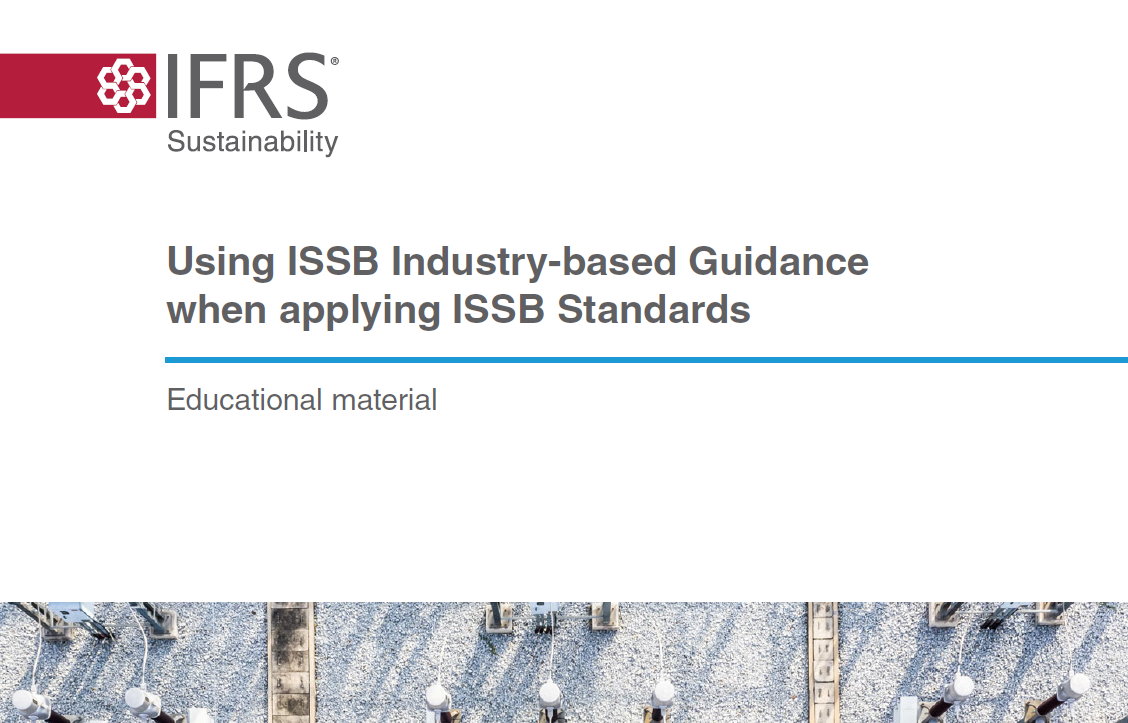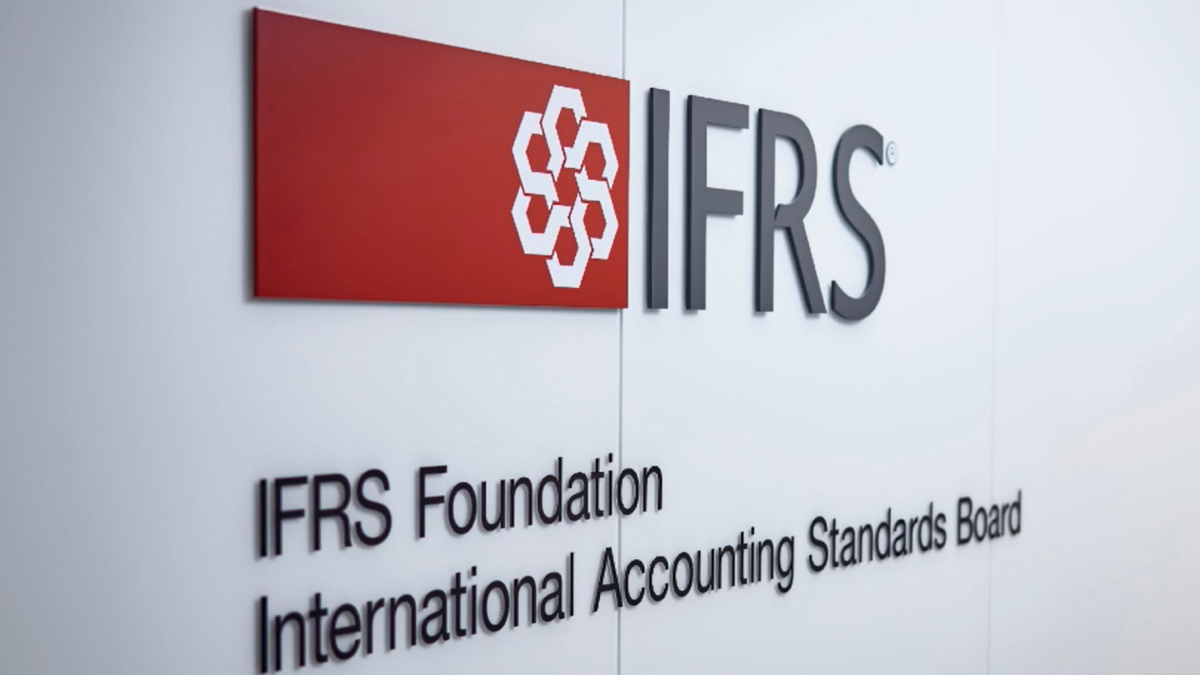Clarifying the Role of ISSB Industry-based Guidance in Applying ISSB Standards
The IFRS Foundation has published implementation support to clarify the role of industry-based guidance within the ISSB Standards, as part of its efforts to assist preparers in applying IFRS S1 and IFRS S2.

The IFRS Foundation’s latest educational publication, released on 10 July 2025, aims to support the consistent application of the ISSB Standards by helping preparers understand how to use industry-specific guidance – namely the SASB Standards and the Industry-based Guidance on Implementing IFRS S2. This guidance plays a significant role in improving disclosure quality and comparability, while not altering the underlying requirements of IFRS S1 and IFRS S2.
The Nature and Purpose of the Industry-based Guidance
ISSB industry-based guidance refers to two key resources: the SASB Standards, which cover 77 industries, and the Industry-based Guidance on Implementing IFRS S2, which includes climate-related content for 68 industries. While not authoritative in themselves, both are essential tools intended to support the identification and disclosure of sustainability-related risks and opportunities that could reasonably affect an entity’s prospects.
The ISSB Standards mandate that entities “shall refer to and consider the applicability” of these resources. This phrasing obliges companies to consult the guidance but leaves room for judgement regarding its application, depending on the entity’s specific facts and circumstances.
Alignment with ISSB Standards
Entities applying IFRS S1 and IFRS S2 are required to use judgement in assessing which sustainability-related risks and opportunities are material. In the absence of a specific ISSB Standard for a particular risk or opportunity, the SASB Standards and related industry-based metrics provide a structured starting point.
For example, IFRS S1 (paragraphs 55 and 58) and IFRS S2 (paragraphs 12 and 32) explicitly direct entities to refer to the SASB Standards (in the context of IFRS S1) and the Industry-based Guidance on Implementing IFRS S2 (in the context of IFRS S2) when identifying relevant topics and associated metrics. The goal is to ensure decision-useful disclosures aligned with the expectations of primary users of general purpose financial reporting.
Industry Relevance and Application Process
To use the guidance effectively, entities must first identify which industries align with their business models and activities. The ISSB industry-based guidance offers detailed descriptions of industry characteristics, disclosure topics, metrics, and technical protocols. This helps entities pinpoint applicable content, even when they operate across multiple sectors.
Where necessary, entities may find it useful to consider disclosure topics and metrics from other industries, particularly when doing so enables primary users to better understand sustainability-related risks and opportunities that could reasonably be expected to affect the entity’s prospects throughout its value chain.
Entities are expected to integrate the guidance into their internal processes systematically. While documentation of this process is not required by the ISSB Standards, it may be necessary to satisfy expectations or requirements from an entity’s governance body, assurance provider or relevant regulators expectations.
Supporting Materiality Judgements and Disclosures
The educational material reinforces that while reference to the guidance is required, its application depends on materiality. If the metrics or topics are deemed not material or not applicable, entities must still provide alternative, decision-useful disclosures in accordance with ISSB requirements.
Additionally, IFRS S1 (paragraph 59) requires disclosure of the sources used in preparing sustainability disclosures, including identification of the industry-specific guidance applied. Entities are also required to disclose significant judgements in accordance with paragraph 74 of IFRS S1 – for example, when they determine not to apply the disclosure topics and associated metrics from the ISSB industry-based guidance for a specific industry, even though primary users would ordinarily expect that guidance to be applicable, and the judgement has a significant effect on the information disclosed.
Interoperability and Global Relevance
The guidance also facilitates alignment between ISSB Standards and other frameworks, such as the European Sustainability Reporting Standards (ESRS). ESRS recognises the ISSB industry-based guidance as a transitional tool to help entities meet sector-specific disclosure expectations. This supports global comparability and reduces duplication for multinational preparers.
Conclusion
The publication of this educational material underscores the ISSB’s intention to support consistent, high-quality implementation of its Standards. By clarifying the required use and discretionary application of industry-based guidance, the IFRS Foundation aims to reduce reporting burdens, support materiality assessments, and enhance the comparability of sustainability disclosures across industries and jurisdictions.



